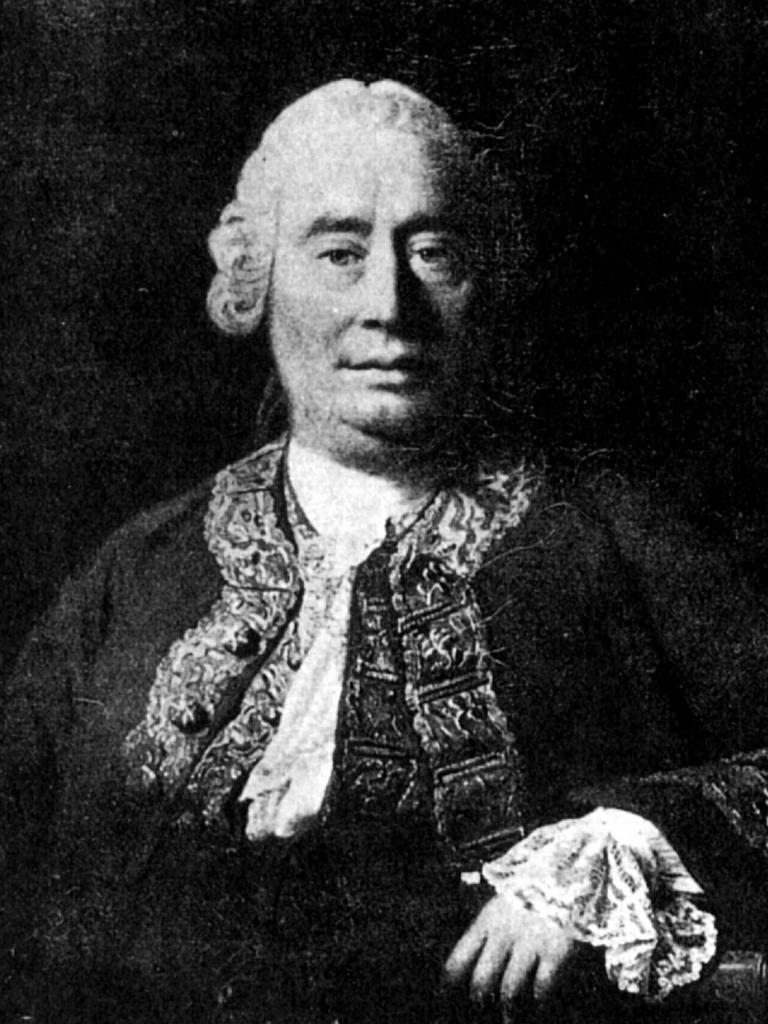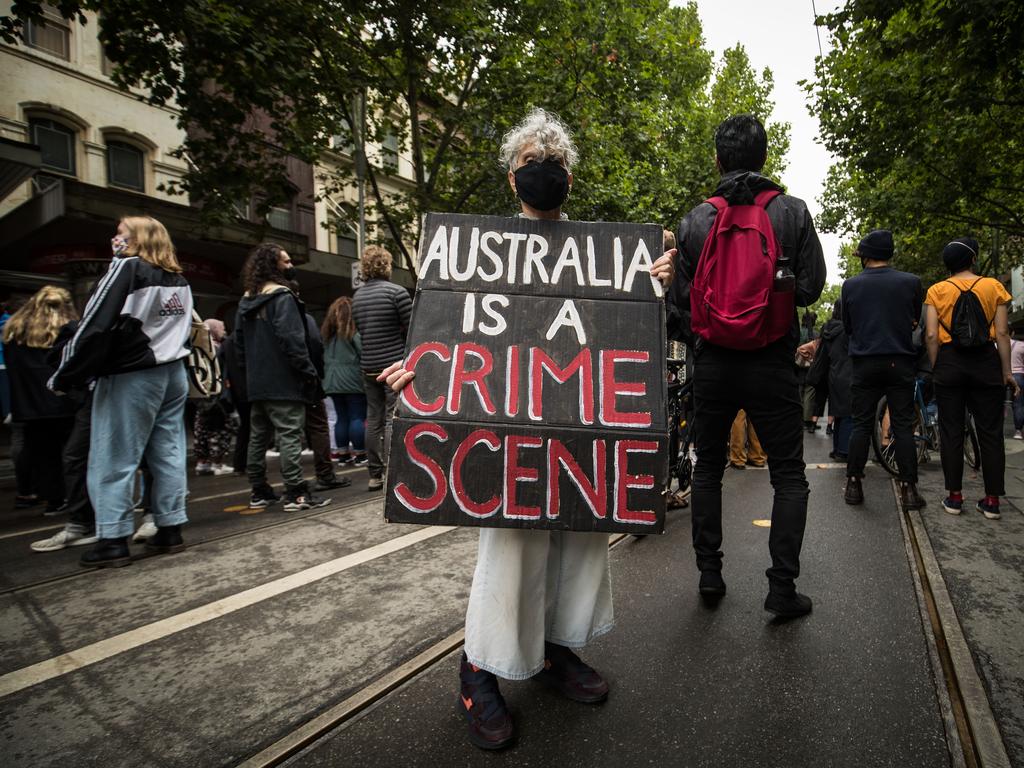Revisionists are stopping us from looking our future in the face


Gaining mastery over the narrative through which society understands itself has become the single most important issue at stake in the culture war. That is why the dogmatic fervour with which censorious social justice crusaders shut down debate in the contemporary world has now made its appearance in discussions about the history of Western society. Cancel culture has moved from focusing its attention on present day matters towards imposing its narrative on how we view the past.
The goal of cancelling the legacy of Western civilisation is pursued through reorganising society’s historical memory and disputing and delegitimating its ideals and achievement. To achieve this objective, the project of cancelling the legacy of Western culture has consciously erased the temporal distinction between the present and the past. That is why protesters target historic symbols of Western culture as if these statutes constitute a clear and present danger to their wellbeing.
Many of the great historical figures of Western science and philosophy – David Hume, Immanuel Kant, Charles Darwin – are attacked and condemned for their values as if they are our contemporaries.
Through treating the present as if it is indistinguishable from the past, prominent historical figures are humiliated because their views do not accord with those of their woke inquisitors.

From the standpoint of a 21st century campus activist, John Locke, whose philosophy contributed to the development of the idea of tolerance, is simply a dead white male and a 17th century racist. Adam Smith, a towering figure of the Scottish Enlightenment, is casually dismissed as an irredeemable racist. Why? Because according to 21st century critics of this 18th century thinker, Smith’s sin was to make a distinction between “savage” and “civilised” nations.
Through reading history backwards and treating ancient, medieval and early modern societies in accordance with the experiences and values of the contemporary world, people from the past are contemptuously dismissed as moral inferiors who lack the awareness of their 21st century critics. The self-flattering practice of reading history backwards reinforces the cultural zeitgeist of presentism. A presentist sensibility leads to a form of historical amnesia where temporal distinctions are overlooked and the distinctions between different moments in history become erased.

The dogmatic zeal with which the presentist crusade against the past is conducted was on full display in the explosion of venomous diatribe hurled against James Sweet, president of the American Historical Association. Sweet’s crime was to pen a gentle critique of the presentist turn of the American history profession. Pointing to the trend of reading history backwards, Sweet complained that for many of his colleagues the past only mattered when read “through the prism of contemporary social justice issues – race, gender, sexuality, nationalism, capitalism”. Sweet’s concern about the influence of grievance archaeology – the project of digging up contemporary grievances in the history of the past – immediately provoked a febrile Twitter storm.
The reaction of the historian David Veevers was typical of the hatred directed at Sweet. He posted on Twitter: “One of the worst things about this absolute twaddle is that this guy thinks societal issues like race, gender, and sexuality are “contemporary” and somehow did not exist in the past. How the hell did he get beyond his undergraduate degree, let alone become president of the AHA?”
Others piled in and suggested that Sweet’s statement adopted an approach that resembled those of right-wingers and Nazis, “in the service of ‘white supremacism and misogyny’”.
These days very few academics have the courage to stand up against the Twitter mob. Sadly, but predictably Sweet issued a forced apology for “harms” that his statement caused. The questioning of woke conventions is often portrayed as damaging and harmful, which is why Sweet felt obliged to state that “once again, I apologise for the damage I have caused to my fellow historians, the discipline, and the AHA”. In an act of self-abasement, he stated: “I hope to redeem myself in future conversations with you all. I’m listening and learning.”
Please read this apology from James H. Sweet regarding his recent #AHAPerspectives column. "I apologize for the damage I have caused to my fellow historians, the discipline, and the AHA. I hope to redeem myself in future conversations with you all." https://t.co/4aAv93GUGvpic.twitter.com/hQK9TRsBiP
— American Historical Association (@AHAhistorians) August 19, 2022
The tone of humiliation with which Sweet promised to re-educate himself came across as a woke version of a Maoist Struggle Session. The most disturbing aspect of the Twitter storm provoked by Sweet’s article is the zealotry with which the discussion of the past is policed. At least in the United States, the presentist interpretation of the past is beyond debate. The founding leaders of the nation – Thomas Jefferson, George Washington, even Abraham Lincoln – are often treated as racist outcasts and anyone who questions this anachronistic way of interpreting the past courts the accusation of condoning white supremacy.
The attempt to censor contemporary opinion is bad enough. But when the policing of thought is projected back into history, there is a danger society loses sight of where it comes from and becomes estranged from ideals that have served humanity so well over the centuries. If even academics cannot question a particular version of the history then there is a danger that the past becomes a closed book, carefully guarded by the totalitarian guardians of the Truth.
Unfortunately, the pathologisation of a nation’s past is not confined to the US. In her paper for the Sydney-based Centre for Independent Studies, Joanna Williams draws attention to a growing tendency to teach Australian history in a way that “emphasises only the sins of a nation’s past”. Her paper, Teaching National Shame, highlights the tendency to devalue pride in Australia’s history by contaminating the past. Increasingly, children are taught a form of accusatory history that encourages them to feel a sense of shame about the legacy of their culture. Casual references to Australia’s “dark past” or “genocidal history” abound and young children are encouraged to feel ashamed about the immoral society into which they were born. In effect, it renders Australia’s past toxic.
The project of rendering Australia’s past toxic is systematically promoted by a campaign calling for the tearing down of statues of historical figures. Recently, Hobart City Council voted to tear down the statue of former Tasmanian premier William Crowther. Crowther stole the skull of an Aboriginal man William Lanne from a morgue and sent it to the Royal College of Surgeons in London.

His is not the only statue targeted by campaigners who believe that you can fix the problems of the past by tearing down public monuments. It looks as though Perth’s statue of Captain James Stirling will be the next target of angry iconoclasts.
The targeting of statues is justified on the ground that it will help rectify the injustices of the past. What is remarkable about this campaign is that it actually treats people like Crowther and Stirling as if they are contemporary figures. This attitude is clearly communicated by Nala Mansell, a Palawa woman, who is the Tasmanian Aboriginal Centre’s campaign co-ordinator. Referring to Crowther’s statue, she said: “I’d like to see it decapitated in the exact same way William Lanne was, and thrown into the tip.”
Tragically, through erasing the boundary between the present and the past, people become imprisoned in a timeless presentist vacuum. Instead of confronting the problems of our time, they are busy fixing the problems of the past. It is almost as if they are determined not to move on.
An obsession of rewriting the past as a history of gloom leads to the condition of temporal paralysis. Unless it is challenged and overcome, it will deprive Australians of the capacity to look our future in the face.
Frank Furedi’s The Road to Ukraine: How The West Lost Its Way, published by De Gruyter, is out this month.






In recent years, the past has become the key site on which the culture war is fought out. It is not surprising that advocates of woke ideology have turned their attention to the past to gain control over the way that people understand their history. As George Orwell stated in his insightful novel, 1984: “Who controls the past controls the future.”